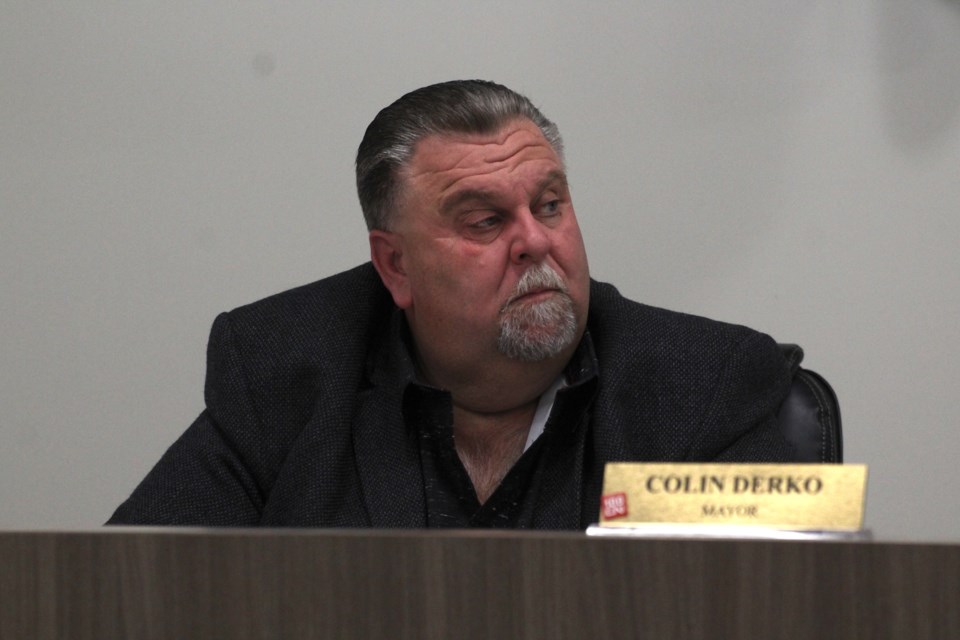BOYLE — Elected officials in the Town of Hinton have decided it’s time the provincial government plays a bigger part in ensuring rural Albertans have access to health care where they are, and Village of Boyle councillors agree.
During a special meeting held Wednesday, May 22, councillors unanimously passed a motion to second an Alberta Municipalities (ABMunis) resolution from Hinton aimed at advocating the provincial government to do more about health care staff shortages in rural areas.
“They reached out to us to get our feelings and input on it,” said Mayor Colin Derko in a May 29 interview. “They knew what we were going through, the same as everybody in rural Alberta, really.”
Boyle’s Hospital emergency department remains closed between the hours of 8 p.m. to 9 a.m. nightly almost two years after its hours were reduced due to staffing shortages. When the closure was announced in July 2022, AHS said regular hours were expected to resume in a month.
“If we second it, we get the opportunity to speak to it too, so I think we’d be dumb not to, to be honest,” said Coun. Barb Smith during the May 15 meeting when the resolution was first in front of councillors. “Obviously with our situation, we have to be fighting for it.”
Hinton councillors initiated the resolution process March 5, and voted to approve the final wording at their May 21 regular meeting. The ask calls for the government of Alberta to create a Rural Health Care Professionals Attraction and Retention Strategy that focuses on increasing the total number of health care staff in rural areas of the province.
The resolution cites a ThinkHQ January 2024 survey of more than 1,300 family physicians in Alberta. Key findings from the study indicate more than 60 per cent of Alberta’s family doctors are considering leaving the province for early retirement or work in other provinces and countries.
ThinkHQ’s data also points to growing concern for the financial state of family practices in the province. Six in ten doctors reported they are considering making significant changes to services offered, with more than half indicating reductions or elimination of comprehensive care are being considered.
With Boyle’s support as a seconder, the resolution is up for review by the Municipal Governance Committee and the Board of Directors before possible publication in the 2024 ABMunis Resolutions Book.
The Resolution Book, containing similar requests for advocacy from member municipalities, is published prior to the ABMunis Fall Convention, to be held in Red Deer this year.
Representatives from both the moving municipality and the seconding municipality will get a chance to speak to the resolution in front of members during the conference, with the opportunity for debate and amendments and voting to follow.
If passed, ABMunis will advocate the government on the issue of creating a provincial strategy for increasing health care staff numbers in rural Alberta for the next three years. Quarterly updates on the progress of resolutions can be found on the ABMunis website.
“Being front and centre on that resolution will show AHS and the government that we want to be part of the solution; we want to get things fixed,” said Derko. “We can sit back and complain, or we can get involved.
Origin story
Although Boyle’s municipal neighbours and partners at the Town of Athabasca don’t have a formal hand in the resolution, Mayor Rob Balay said councillors did express interest in seconding the initiative.
But due to new rules around resolution submissions put into place this year, Athabasca was not able to act as the official seconder. Movers and seconders must represent two of three different population categories, meaning Hinton needed a municipality with a population either under 2,500 or over 10,000.
Despite the changes, Athabasca still has a stake in the success of the resolution, as do other neighbouring regions dealing with health care staffing shortages and rolling hospital closures such as Cold Lake and Lac La Biche.
“Boyle is part of our regional health care attraction and retainment committee, so they would be speaking for our region,” said Balay in a May 30 interview. “They’re the ones that have had their emergency department closed for over two years now, and that directly impacts our doctors and our hospitals … it has a lingering effect,” he added.
Officials from both the town and the village have said if the resolution is passed, elements they would like to see in a provincial strategy include more funding for community-based initiatives, such as solutions to like those aimed at providing short-term housing for incoming health care staff.
Derko also highlighted better communication between communities and AHS when receiving and welcoming new staff. “If we know ahead of time, we can have that ‘welcome wagon’ ready,” said Derko. “We want to make sure that they’re looked after and feel welcome.”
“It’s one thing to get them into our province, but we gotta look after ‘em and make sure they want to stay,” he added.
Balay listed relaxed entry requirements to medical programs as one method to encourage more Albertan graduates to take up the torch and said more incentives for professionals to live and practice in rural communities could lessen the staff shortages in small centres.
“In our communities, health care is one of the number one priorities,” said Derko. “When you’re sick, you’re sick, it doesn't matter who you are. We want to make sure we have that coverage for all our people living here.”



